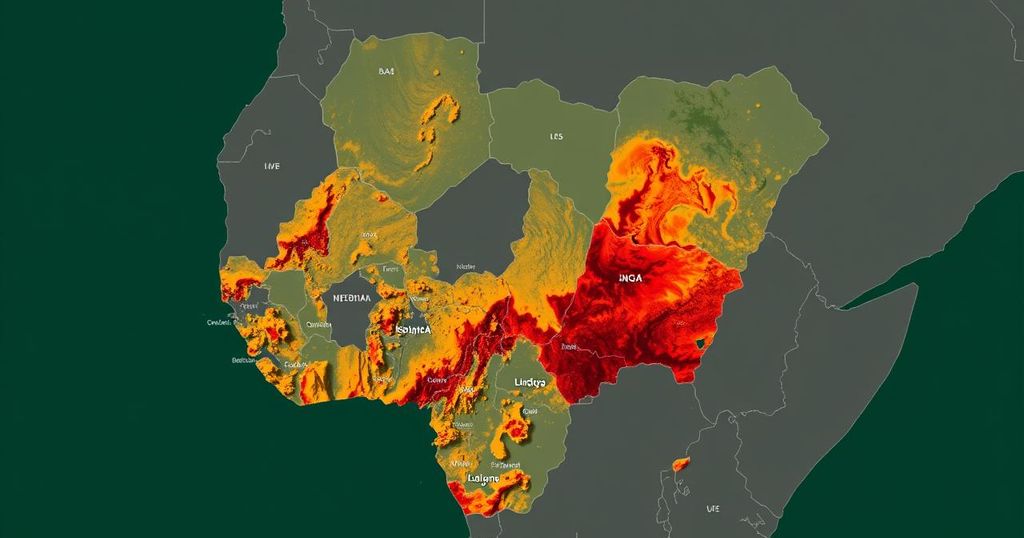In northeastern Nigeria, climate change and escalating armed conflict have led to a serious increase in malnutrition rates, with reports of a 24 percent rise in cases among children. The International Committee of the Red Cross has highlighted the dire circumstances faced by families due to violence and environmental challenges, risking food security for millions in the Lake Chad region.
In Nigeria, the dual challenges of climate change and persistent armed conflict, particularly in the northeast, have dramatically surged the rates of severe malnutrition. The International Committee of the Red Cross (ICRC) has reported a concerning 24 percent increase in malnutrition cases among children compared to the previous year, signifying that families in the Lake Chad region are increasingly struggling to secure adequate food supplies. A mother named Rabiatu Jubrilla recounted her experience at the ICRC’s Mubi stabilization clinic, where she brought her malnourished son, who could not sit unassisted. “He was healthy when I delivered him, but at 1 year 9 months old, I stopped breastfeeding him. He began to lose weight, and we thought it was because he was not able to get breast milk,” she explained. The enduring armed conflict is cited as a primary factor exacerbating the food crisis, displacing millions, undermining livelihoods, and restricting access to agricultural land. Paul Ezra, a farmer from Madagali village, expressed the difficulties faced by farmers, noting that violence from groups such as Boko Haram prevents access to fields: “We don’t have enough farmland. Before, we used to go out in the fields to farm. But now, Boko Haram and other armed groups have taken over the bush.” The ICRC has warned that this rise in food insecurity correlates with escalating violence; fighting in the Lake Chad region has surged by 58 percent in the early months of 2024. The region’s heavy dependence on subsistence farming has rendered it particularly susceptible to climatic variations, including irregular rainfall, further jeopardizing agricultural productivity. This year, devastating floods have destroyed crops and dashed hopes for a fruitful harvest, following a prolonged period of drought. Farmers report dire consequences; Abubakar Bello Duhu remarked, “We have people who fainted and are at the hospital. Others have died because there is not enough to eat.” The ICRC projects that over six million individuals in the Lake Chad region will face significant food shortages in the immediate future due to the intertwined effects of conflict and climate change.
The situation in northeastern Nigeria is dire, with climate change and armed conflict deeply affecting food security and malnutrition rates. This region has witnessed prolonged instability from insurgent groups, which has led to widespread displacement and disruption of farming activities. The dependency of the local population on subsistence agriculture compounds their vulnerability to adverse weather conditions, such as irregular rainfall and flooding, which further threaten their ability to produce food. The humanitarian crisis is exacerbated by the ongoing violence, making it exceedingly challenging for communities to secure nourishment for their families.
In conclusion, the combination of climate change and ongoing conflict in northeastern Nigeria poses a significant crisis, as illustrated by the alarming rise in malnutrition rates among children. The data presented by the ICRC underscores the urgent need to address both the immediate humanitarian concerns and the underlying causes of food insecurity in the region. With millions at risk of food shortages, concerted efforts from both national and international stakeholders are imperative to restore stability and provide adequate support to affected communities.
Original Source: www.africanews.com






